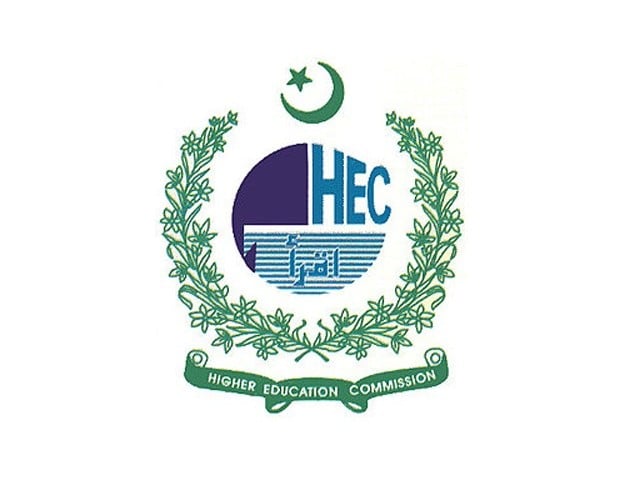Exploring the Food Sharing Experiences of Foreign V Loggers: A Netnographic Approach for Pakistani Food Tourism
Keywords:
Tourism, netnography, hospitality, food tourism, video loggers, cultural food, sustainable developmental goalsAbstract
Purpose: The purpose of this study is to explore the food industry and hospitality of Pakistan through the experience of video loggers from all over the world.
Study Design / Methodology / Approach: In this study, different video loggers from all over the world who used to share their experiences related to food and culture were selected. A qualitative ethnographic research study was conducted based on observation and thematic analysis, and 38 dialogues were analyzed.
Findings: People who travel to Pakistan find the food delicious and full of flavours. Not only has this, but the hospitality of Pakistani people inspired them.
Research Limitations: The study is based only on qualitative analysis and conducted from 6 video loggers and 15 videos. In future, the study can be extended to a greater extent, with 38 dialogues and multiple videos.
Social Implications: This ethnographic study explores the positive image of Pakistan and extends joyous gratitude to the people living in this country. In the future, it will help the Pakistani tourism market grow fruitfully.
References
1. Agarwal, N., Liu, H., Tang, L. & Yu, P. S., 2008. Identifying the Influential Bloggers in a Community. Proceedings of the 2008 international conference on web search and data mining, pp. 207-218.
2. Akbar, A., Ali, S., Ahmad, M. A., Akbar, M., & Danish, M. (2019). Understanding the antecedents of organic food consumption in Pakistan: moderating role of food neophobia. International journal of environmental research and public health, 16(20), 4043.
3. Alessendro, C., 2014. Ethnography in digital spaces: Ethnography of virtual worlds, netnography, & digital ethnography." Handbook of anthropology in business. Routledge. In: Anthropology in Business. s.l.:Taylor & Francis Group, pp. 658-679.
4. Ali, M., Puah, C.-H., Ayob, N. & Raza, S. A., 2019. Factors influencing tourist's satisfaction, loyalty and word of mouth in selection of local foods in Pakistan. British Food Journal, 122(6), pp. 2021-2043.
5. Arshad, M. I., Iqbal, M. A. & Shahbaz, M., 2017. Pakistan Tourism Industry and Challenges: A Review. Adia Pacific Journal of Tourism Research.
6. Avraham, E., 2020. Nation branding and marketing strategies for combatting tourism crises and stereotypes toward destinations. Journal of Business Research, Volume 116, pp. 711-720.
7. Avraham, E. & Ketter, E., 2016. Tourism marketing for developing countries: Battling stereotypes and crises in Asia, Africa and the Middle East. s.l.:Palgrave Macmillan.
8. Avraham, E. & Ketter, E., 2017. Destination image repair while combatting crises: Tourism marketing in Africa. Tourism Geographies, 5(19), pp. 780-800.
9. Azam, M., Mahdiat, M., Hafeez, M. H. & Bakhtyar, B., 2022. INVESTIGATING THE ROLE OF TOURISM IN ECONOMIC GROWTH: EMPIRICAL EVIDENCE FROM PAKISTAN. Polish Journal of Sport and Tourism, 29(1), pp. 39-47.
10. Barlow, K., 2010. Sharing Food, Sharing Values: Mothering. Journal of the Society for Psychological Anthropology, 38(4), pp. 339-353.
11. Baruah, A. A., 2017. Travel Imagery In The Age Of Instagram: An Ethnography Of Travel Influencers And The “Online Tourist Gaze”. London: Department of Anthropology and Sociology SOAS, University of London.
12. Beck, E. Z., 2022. Pakistan — eva zu beck - official website - raw adventurer & travel vlogger. [Online] Available at: https://evazubeck.com/pakistan [Accessed 7 January 2022].
13. Briliana, V., Ruswidiono, W. & Deitiana, T., 2020. Do Millennials Believe in Food Vlogger Reviews? A Study of Food Vlogs as a Source of Information. Journal of Management and Marketing Review, 3(5), pp. 170-178.
14. Briliana, V., Ruswidiono, W. & Deitiana, T., 2021. How Social Media are Successfully Transforming the Marketing of Local Street Food to Better Serve the Constantly- Connected Digital Consumer. Advances in Economics, Business and Management Research, Issue 174, pp. 322-327.
15. Buhalis, D., 2022. Tourism management and marketing in transformation:. s.l.:s.n.
16. Ellis, A., Park, E., Kim, S. & Yeoman, I., 2018. What is food tourism? Tourism Management, Volume 68, pp. 250-263.
17. Esmaeli, L., Mardani, S., Golpayengani, S. A. H. & Madar, Z. Z., 2020. A novel tourism recommender system in the context of social commerce. Expert Systems with Applications, Volume 149, p. 113301.
18. Gajic, M., 2015. Gastronomic Tourism – A Way Of Tourism. Quaestus Multidisciplinary Research Journal, Volume 6, p. 155.
19. Garibaldi, R., Stone, M. J. & Pozzi, A., 2021. Consuming Gastronomy While Travelling: What Do Tourist Want?. Tourism in the Mediterranean Sea.
20. Gvili, Y. & Levy, S., 2021. Consumer Engagement In Sharing Brand-Related Information On Social Commerce: The Roles Of Culture And Experience. Journal of Marketing Communications, 27(1), pp. 53-68.
21. Hadi, A., 2017. Patriarchy and Gender-Based Violence in Pakistan. European Journal of Social Sciences, 4(4), pp. 289-296.
22. Hao, A. W., Paul, J., Trott, S. & Wu, H.-H., 2019. Two decades of research on nation branding: a review and future research agenda. International Marketing Review.
23. Hoffsman, D., 2022. davidsbeenhere.com. [Online] Available at: https://davidsbeenhere.com/about/ [Accessed 9 1 2022].
24. Huang, Z. & Benyoucef, M., 2013. From e-commerce to social commerce: A close look at design features. Electronic Commerce Research and Applications, 4(12), pp. 246-259.
25. Hussain, K., 2020. SOCIAL MEDIA IMPACT ON TOURISM IN PAKISTAN. Bulletin of Business and Economics, 9(2), pp. 78-84.
26. Hussin, H., 2018. Gastronomy, Tourism, and the Soft. Sage Open, 8(4), pp. 1-11.
27. Jaworski, A., Thurlow, C., Lawson, S. & McEwen, V. Y., 2003. The Uses and Representations of Local Languages in Tourist Destinations: A View from British TV Holiday Programmes. Language Awareness, 12(1), pp. 5-29.
28. Ketter, E., 2016. Destination image restoration on facebook: The case study of Nepal's Gurkha Earthquake. Journal of Hospitality and Tourism Management, Volume 28, pp. 66-72.
29. Khan, A. U., Baloch, D. B. & Naseer, R., 2020. The Sustainable Marketing Mix of Tourism and Visitors Fulfilment: An Empirical Evidence From Cultural Tourists To Pakistan. Journal of Business and Tourism, 6(1), pp. 123-145.
30. Konecnik, M. & Gartner, W. C., 2007. Customer Based Brand Equity for a Destination. Annals of Tourism Research, 34(2), pp. 400-421.
31. Kozak, M. & Buhalis, D., 2019. Cross–border tourism destination marketing: Prerequisites and critical success factors. Journal of Destination Marketing & Management, Issue 14, p. 100392.
32. Lee, J. E. & Watkins, B., 2016. YouTube vloggers' influence on consumer luxury brand perceptions and intentions. Journal of Business Research, 12(69), pp. 5733-5760.
33. Liu, T. M., Liu, Y. & Zhang, L. L., 2019. Vlog and brand evaluations: the influence of parasocial interaction. Asia Pacific Journal of Marketing and Logistics, 31(2), pp. 419-436.
34. Lobato, L. M. F. G., 2019. A netnographic study about online engagement on food tourism communities and what to look for as a business owner. Doctoral Dissertation.
35. Loh, P. & Agyeman, J., 2019. Urban food sharing and the emerging Boston food solidarity economy. Geoforum, pp. 213-222.
36. Lunchaprasith, T., 2017. Gastronomic experience as a community development driver: the study of Amphawa Floating Market as community-based culinary tourism destination.. Asian Journal of Tourism Research, 2(2), pp. 84-1146.
37. Martins, M., 2016. Gastronomic tourism and the Creative Economy. Journal of Tourism, Heritage & Services Marketing, 2(2), pp. 33-37.
38. Matondang, S. A., Rahma, S. & Haramain, T., 2020. Digital Food Marketing and Delivery of Ethnic Food Impacts on Culinary Business. Talent Development & Excellence, 12(2), pp. 1231-1236.
39. Mike, A. A., Emmanual, A. & Mallo, D. M., 2020. Application of Corporate Social Responsibility (CSR) in the Management of Housing Projects in Nigeria: Methodological Perspective.
International Journal of Research in Environmental Science , 6(2), pp. 9-20.
40. Mkono, M., 2011. The Othering of Food in Touristic Entertainment: A Netnography. Tourist Studies, 3(11), pp. 253-270.
41. Mohantry, P., Rout, H. B. & Sadual, K. S., 2020. Food, Culture and Tourism: A Gastronomy Trilogy Enhancing Destination Marketing, Case Study of Odiisha, India. International Journal of Tourism & Hospitality in Asia Pacific, 3(1), pp. 15-30.
42. Moral-Cuadra, S., Solano-Sánchez, M. A., Menor-Campos, A. & López-Guzmán, T., 2021. Discovering Gastronomic Tourists' Profiles Through Artificial Neural Networks: Analysis, Opinions and Attitudes. Tourism Recreation Research, 47(3), pp. 347-358.
43. Niedbala, G., Jeczmyk, A., Steppa, R. & Uglis, J., 2020. Linking of Traditional Food and Tourism. The Best. Sustainability, 13(12), p. 5344.
44. Pandolph, S., 2018. The Social Commerce Report: How Facebook, YouTube, Pinterest, and other popular apps are upending the e-commerce space. p. 2019.
45. Peralta, L. R., 2019. How vlogging promotes a destination image: A narrative analysis. Place Branding and Public Diplomacy, 15(4), pp. 244-256.
46. Pike, S. D., 2009. Destination Brand Positions of a Competitive Set of Near Home Destinations. Tourism Management, 30(6), pp. 857-866.
47. Privitera, D. & Abushena, R., 2019. Case Studies in Food Retailing and Distribution. The home as a consumption space: Promoting social eating, pp. 69-86.
48. Privitera, D., Nedelcu, A. & Nicula, V., 2018. Gastronomic and Food Tourism as an economic local resource: case studies from Romania and Italy. Geo Journal of Tourism and Geosites, 21(1), pp. 143-157.
49. Rageh, A., Melewar, T. & Woodside, A., 2013. Using netnography research method to reveal the underlying dimensons of the customer/tourist experience. Qualitative Market Research: An International Journal, 2(16), pp. 126-149.
50. Seo, S. & Yun, N., 2015. Multi-dimensional Scale to Measure Destination Food Image: Case of Korean Food.. British Food Journal, 117(12), pp. 2914-2929.
51. Siea, L. C., 2021. Guidelines for the Gastronomy of Dobrogea, Foundation for the Development of the Local Gastronomic Tourism. Cactus Tourism Journal, 3(2), pp. 47-55.
52. Szytniewski, B., Spierings, B. & Velde, M. v. d., 2016. Socio-cultural proximity, daily life and shopping. Tourism Geographies, 19(1), pp. 63-77.
53. Thanh, T.-V. & Kirova, V., 2018. Wine Tourism Experience: A Netnography Study. Journal of Business Research, Issue 83, pp. 30-37.
54. Thiebot, J. B. et al., 2016. On the significance of Antarctic jellyfish as food for Adélie penguins, as revealed by video loggers. Springer briefs in Water Science and Technology, 163(5), pp. 1-8.
55. Ting, H., Run, E. C. d., Jun-Hwa, C. & Chuah, F., 2016. Food neophobia and ethnic food consumption intention: An extension of the theory of planned behaviour. Bristish Food Journal, 118(11).
56. Usmani, A. & Malik, M. A., 2021. Integration of Colonial food culture into Pakistani Cuisine. Journal of Research Society of Pakistan, 58(2), p. 114.
57. Walter, A. M., 2022. Images of the Mountains: Touristic Consumption and Gendered Representations of Landscape and Heritage in Gilgit-Baltistan. Visual Anthropology, 35(3), pp. 225-247.
58. Wang, Y., 2020. Humor and camera view on mobile short-form video apps influence user experience and technology-adoption intent, an example of TikTok (DouYin). Computer in Human Behavior, Issue 110, p. 106373.
59. Wing, K., 2020. disruptmagzine. [Online] Available at: https://disruptmagazine.com/luke-damant-the-20-year-old-disruptor-leading-a-new-generation-of-travel-vloggers/ [Accessed 20 6 2020].
60. Zurek, K., 2016. Food Sharing in Europe: Between Regulating. European Journal of Risk Regulation, 7(4), pp. 675-687.
Downloads
Published
Issue
Section
License
Copyright (c) 2024 Archives of Management and Social Sciences

This work is licensed under a Creative Commons Attribution 4.0 International License.




